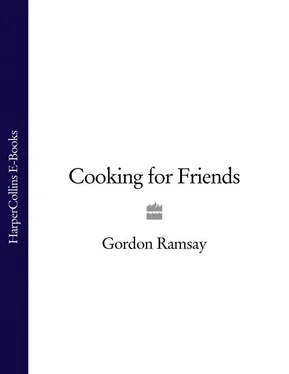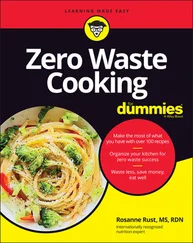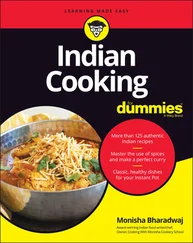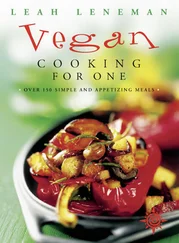I’m a bit old-fashioned in this way. I don’t have rules and regulations at home, but what I do have is a very hands-on family. It’s not me standing there, cooking away and everyone watching. On Saturday morning, after the girls have been to the gym and Jack has got back from football, we come back and prepare a late lunch together. We won’t eat dinner until seven thirty, eight o’clock, and then it will be a slow braise. For
Sunday lunch, we have friends and family round, and over the weekend, we might indulge in a dessert. On Monday to Friday, it’s a substantial main course, followed by fruit.
Not everything comes from the farmers’ market. It would be great, but just not practical. Tana will shop two or three times a week at a supermarket, and I have to say that some of the supermarkets are doing some really good, interesting food lines. Out of respect for real quality ingredients, we also go to specialist purveyors, like Randalls, our butchers. Knowing where your food comes from and being able to trace it right back to its source is important to me.
I’d rather spend more and eat less, buy the best quality ingredients and savour them, buy what we need and no more. Sometimes I find it embarrassing when I see the amount of food that we, as a nation, waste.
I find it frustrating at how we are forgetting that there has always been a traditional British cuisine, and it doesn’t have to revolve around steak and kidney pie, or fish and chips. I remember watching my mother cook at the Cobweb tearooms in Stratford-upon-Avon, making ham hock barley soup, white veal stew, the most amazing honey-glazed roast ham, and, of course, all served with chips. What you don’t see nowadays is the way she used to stud the ham with cloves and caramelize it. All that forgotten, unfashionable stuff was traditionally British. Wonderful, but forgotten in our haste to experiment with modern fads.
We are at risk of trying to make food too sophisticated as we move along, changing ingredients to follow what’s in vogue. The words ‘trendy food’, ‘trendy restaurants’ and especially ‘trendy chef’ make me cringe. It is not always necessary to use foie gras with the finest fillet steak and line-caught turbot. Sometimes it’s just better to braise some oxtail and cook with mackerel, pollack or gurnard.
I’m always excited around food. There are so many opportunities to prepare and eat good food in the home if you have the patience and determination. Once you’ve got good at making amazing fresh pasta, you will want to make ravioli. Once you’ve mastered the perfect ravioli, you will want to get more intricate with the filling. A domestic kitchen is a far superior place to what it was ten years ago. And we’re competitive as a nation. We want to outdo our neighbours. We know and understand the importance of eating well, so mix that with our natural peacock tendency to be the one who hosts the best dinner parties, and you are on the path to a whole new dimension in your life at home.
But don’t get overconfident and miss the point when preparing a dinner party. Lighten up, have a glass of wine. Have your guests in the kitchen with you, and instead of showing off to them, involve them. Delegate the starter and the dessert while you tend to the main course. What can be difficult for me when going to dinner parties is when people hang on your every forkful. The food has been prepared in order to be enjoyed. It should be relaxing, not there to take you into a stress zone.
The palate can be educated. It’s a matter of learning, of discipline and of practice. It is also the best reason in the world to stop smoking. Smoking will always dull your palate and confuse your taste buds. It’s a bit like playing football with your laces tied together.
I love to see an array of cookbooks on someone’s shelf so that I can see who excites people. And I love to see a top chef’s recipes domesticated for home use. I have hundreds of cookbooks, though slightly fewer now, after taking all of our Delia cookbooks to Oxfam. I was astonished when I saw her using canned mince. Where’s the feel-good factor in that sort of compromise? It just gives the wrong message. We’re one of the hardest-working nations in the world. We move forwards, not backwards. The phenomenal confidence that Delia gave people, the impact that she has had over thirty years, has to my mind been shattered in one book. It made me quite distraught and taught me never to invest in a football club, if that’s what it does to you.
I get nervous if people tell me that they follow my recipes word for word. A recipe is a guideline. Adding, subtracting, evolving it – that is part of the pleasure. If a particular herb is not to your taste, if you don’t like the strength of rosemary, say, by all means, use thyme, especially lemon thyme. If you prefer the purple basil in the middle of summer, then great (if you ever can get it). If you are not excited about using swede the way I am, then use celeriac. We don’t eat enough turnips or kohlrabies – in terms of flavour, they’re extraordinary. Adapting the ingredients is completely in your hands. But the method is what matters. The techniques in cooking are rigorous and imperative: they are your passport to a successful dish. Cooks must practise, practise, practise. Anyone can learn, but you need focus, proper understanding, and to go at the right pace, not running before you can walk.
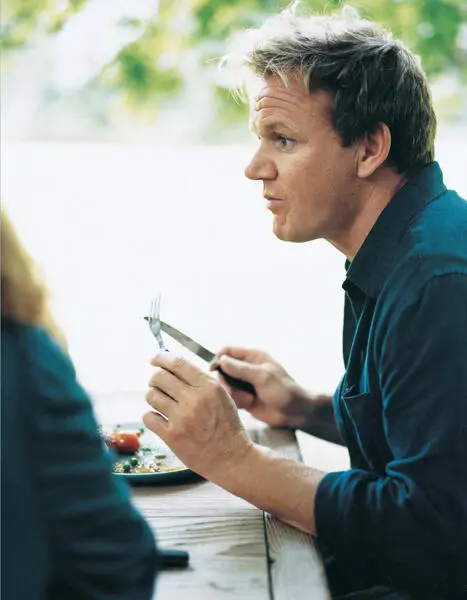
I’ll never forget, as a 22-year-old commis chef, working for the Roux brothers, all I wanted to do was bake, make the most amazing puff pastry, choux pastry, sourdough bread, and tomato and olive bread, using a natural yeast and fermentation. As a baker, you would start at midnight and work until midday. At half past midnight, it fell silent. All you could hear was the timers and the steamers for the second proof. On one occasion, I had to put together this marquise chocolate. Pascal, the young French pastry chef I was taking the section over from, could hardly speak English. He left me a box of After Eight mints, and said that I was to put a layer of chocolate mousse in the bottom of the mould and then add the After Eights. He wanted me to cut them in half and arrange them in threes in order to get this line of mints going through the mousse. I was thinking: this guy’s winding me up. He’s trying to get me into trouble. So I ate the mints instead.
The next day, Albert Roux came in. You have to give him one of everything, down to every bread roll, so that he can taste it all. I gave him the marquise, and he went bananas because it didn’t have the mints running through the centre. I couldn’t believe he would make an amazing chocolate mousse and stick After Eight mints in the middle. I got a bollocking. It got thrown in the bin, and I had to start again. I grew up on a council estate, but trained with the best. I’ve trained my palate with some of the greatest chefs, but sometimes you have to question the best. Cookery is quite a journey. Take nothing for granted.

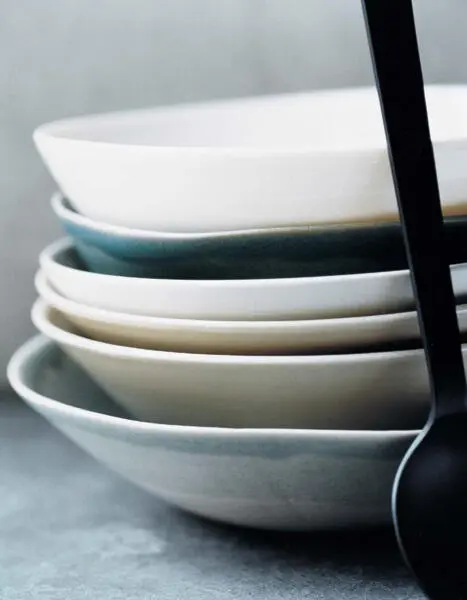
Soups are truly versatile: they can be as light or substantial as you want. In small amounts, a good soup can excite the palate in the form of a starter. Enrich the broth or bulk it up with chunky ingredients and it converts into a satisfying main course.
Читать дальше
